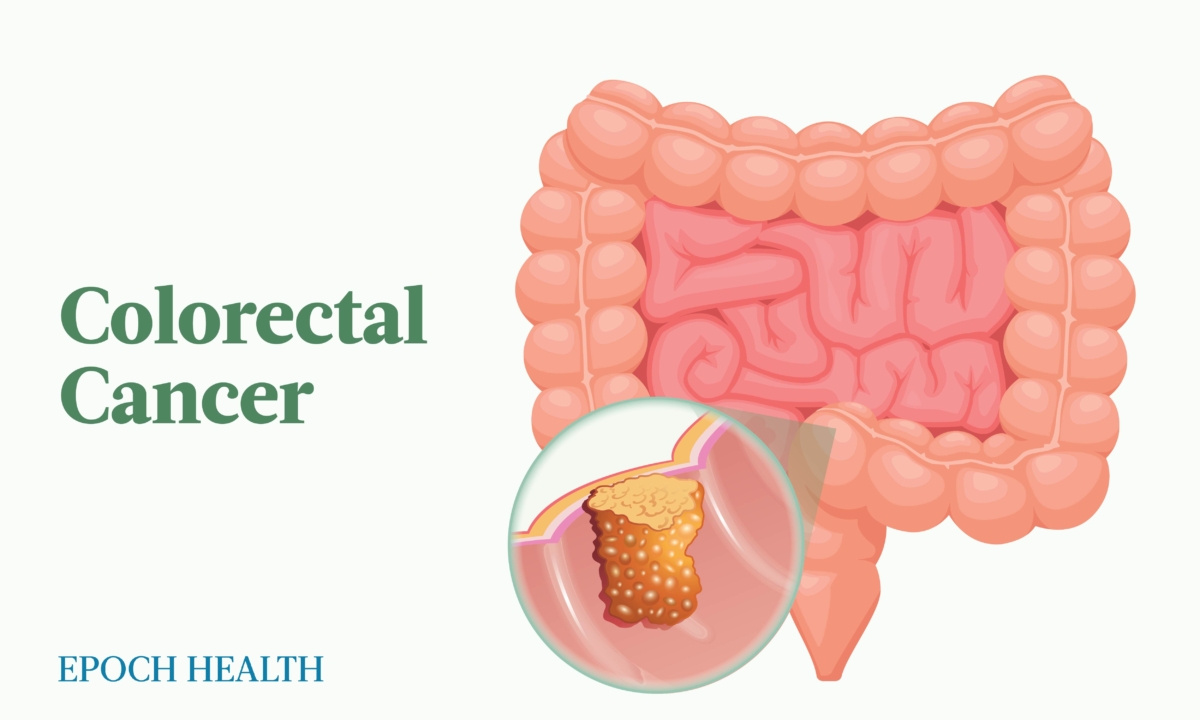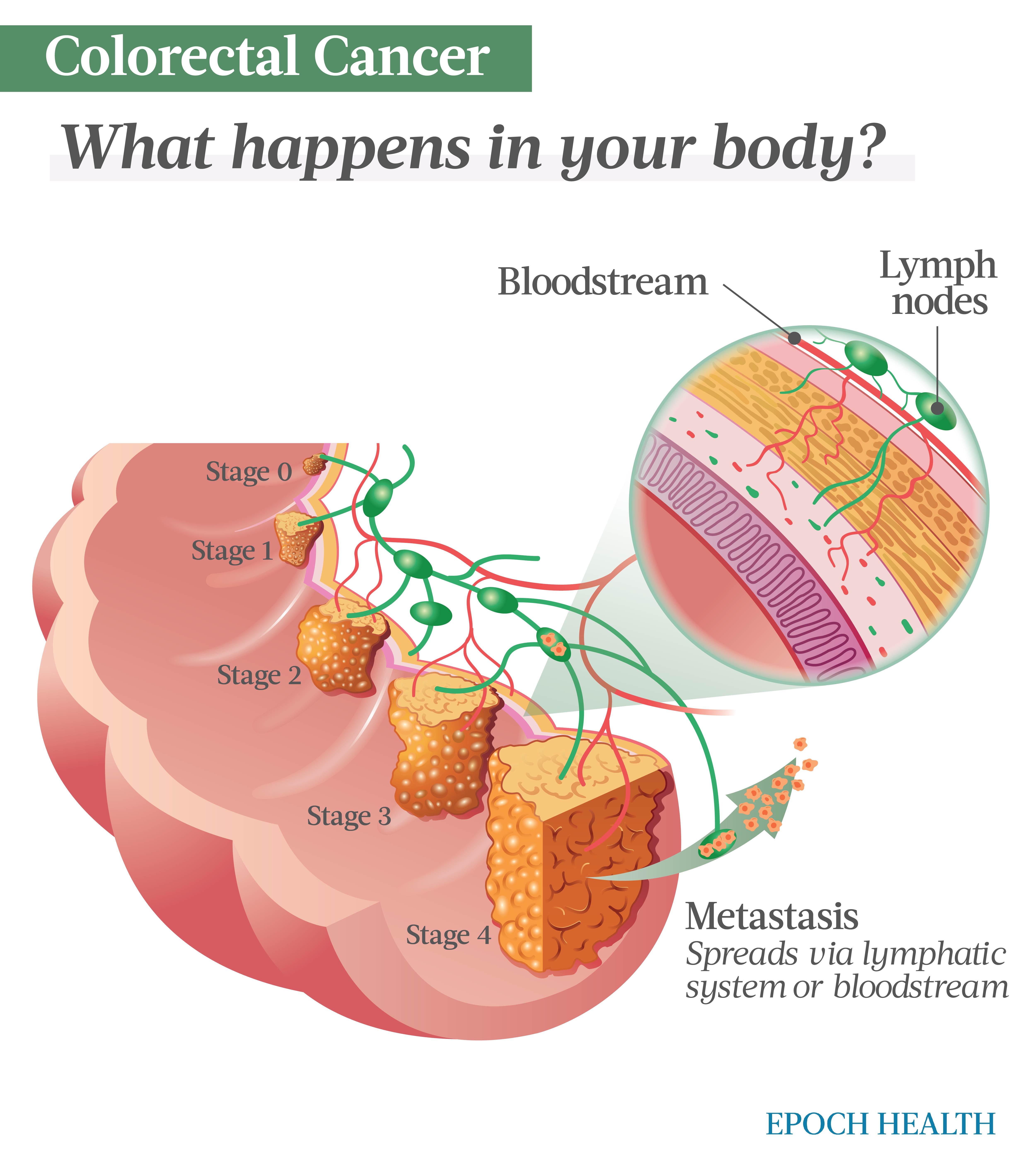


Colorectal cancer is the third most diagnosed cancer in both men and women in the United States. While overall incidence rates seem to be dropping, rates in people under 50 have increased by 1 to 2 percent yearly since the mid-1990s. In addition, colorectal cancer is responsible for the second leading cause of cancer-related deaths when fatality numbers for both men and women are combined.
Part of the challenge of diagnosing colorectal cancer is that it often does not present symptoms until it has spread. Once symptoms present, gastrointestinal (GI) tests are often completed to rule out other complications or causes.
The good news is that colorectal cancer’s five-year relative survival rate is around 91 percent for localized cancers, meaning the cancer was caught early and did not spread to additional areas. If the cancer goes undetected and spreads to other areas of the body, these rates decline.
There are several different types of colorectal cancer. All occur due to uncontrollable cell growth in the tissue of the colon or rectum, which can spread elsewhere in the body. Some types of colorectal cancer seem to develop due to genetic predisposition or family history, whereas others do not show a genetic link.
The other roughly 5 percent of colorectal cancers are comprised of the following:
Colorectal cancer does not typically present with symptoms in earlier stages, making it more difficult to detect.
As colorectal cancer progresses, the following symptoms are common:
Because many medical conditions can cause many of these symptoms, it is essential to consult a doctor if you begin to experience any to rule out other causes.
The precise cause of colorectal cancer is unknown, but several factors are believed to be involved, one being polyps.
Many people have polyps, small groupings of cells, in the lining of their colons. Most polyps are harmless; however, some can develop into colorectal cancer. These are known as neoplastic polyps. Polyps may develop due to gene expression changes or dietary and lifestyle habits. Because polyps don’t typically present with symptoms, regular screening is important for detection.
Similarly to all cancers, colorectal cancer occurs when cells proliferate uncontrollably. The cells in the colon and rectum will continue to divide at an unnatural rate until they develop into a cancerous tumor.
Both genetics and modifiable factors play a role in colorectal cancer risk. While further research is needed to understand why those with first-degree relatives who have had colorectal cancer are at a higher risk, there is an undeniable correlation, with an estimated heritable component of around 35 percent. These familial cancers seem to develop without any other known cause. Screening is recommended earlier in life for individuals whose relatives have had colorectal cancer.
The following people are more at risk for colorectal cancer:
Colorectal cancer staging is complex but generally concerns stages 0 through 4. These stages include:
The cancer is in its earliest stage and has not spread past the innermost layer of the colon or rectum.
The cancer has grown through the mucosa and into the submucosa but has not spread to the lymph system or distant sites.
Stage 2 is broken into three categories:
Stage 3 is broken into three categories:
Stage 4 is broken into three categories:
Regular testing at an earlier age for individuals genetically predisposed to colorectal cancer is a good idea. The screening tests for colorectal cancer most commonly involve a colonoscopy, but other tests can include a stool test, sigmoidoscopy, and capsule endoscopy.
If you are experiencing symptoms or a screening test points toward abnormal findings, follow-up tests can be completed to confirm or rule out a diagnosis.
These tests include:
If a diagnosis of colorectal cancer is confirmed, your doctors will stage the cancer, which helps inform which treatments can be most effective.
Colorectal cancer can develop with several complications, with areas most affected being the digestive system and the nerves within this system.
Some of the most common acute complications include:
The treatments for colorectal cancer will vary based on the advancement of the cancer, where it is located, and the person’s overall health status. Standard treatments can involve surgery, chemotherapy, radiation, immunotherapy, targeted therapies, or palliative care. The following is what some treatments entail:
The research is mixed regarding how optimism or a positive attitude affects cancer outcomes and perceived quality of life. While some studies indicate that keeping a positive outlook amidst a cancer diagnosis helps improve cancer patients’ quality of life, further research is needed to confirm a direct correlation.
As stated earlier, the incidence of younger-onset colorectal cancer in people under 50 is increasing. As such, the mental component of experiencing cancer at a younger age can understandably take a toll.
Research indicates that the emotional distress for younger individuals experiencing colorectal cancer is one of the most common and significant types of psychosocial impairment. In addition, the social impact and how a diagnosis affects one’s family or social relationships is also significant and plays into emotional stress. Because battling a cancer diagnosis comes with physical repercussions, individuals also noted changes sexually and in their ability to continue working, which can negatively affect their mental health status.
In addition, due to some of the possible unique consequences of colorectal cancer, like a colostomy bag, emotional distress for individuals can be higher than in other types of cancers. Especially for younger individuals, a physical bag on the outside of the body may cause embarrassment or sexual impediments, leading to increased levels of distress.
For all ages, because the cancer diagnosis is challenging to cope with, care is needed for individuals battling cancer during and long after a diagnosis or treatment. Research shows that for survivors, many concerns continue to impact individuals beyond treatment significantly.
Some of these concerns involve:
While a colorectal cancer diagnosis is life-altering and has mental health ramifications, enlisting the right team of qualified health care practitioners, including doctors and therapists, is essential. Considering support groups and other ways to surround yourself with individuals who have had similar experiences can also be an empowering step.
There is a shortage of randomized controlled trials examining the relationship between natural treatment approaches to colorectal cancer and successful cancer eradication. However, one 2014 study examined a Pan-Asian medicine, vitamin, and nutrition intervention and its survivorship. Specific herbal-based interventions were provided, including several Pan-Asian medicinal formulas and supplementation with nutrients like curcumin, fish oil, folic acid, coenzyme Q10, and royal jelly. While this study showed promise when combining natural approaches with chemo and other anti-cancer drugs, further studies are needed to confirm which natural treatments had the most significant effects on cancer apoptosis.
Another 2019 review examined natural nutritional approaches to fighting colorectal cancer and indicated some positive findings. For example, foods containing alkaloids, or compounds found in several plant-based foods have a tumor-suppressing effect by inhibiting growth factors that cause upregulation of cancer cells. These foods include:
The study also examined compounds high in polyphenols like resveratrol (found in red grapes), curcumin (found as turmeric), and berberine, finding that the anti-inflammatory nature of these compounds can aid in cancer cell death.
Another comprehensive review indicated that other plant-based phytochemicals are shown to be helpful when fighting against colorectal cancer. The most beneficial foods with these phytochemicals included the following:
These plants are high in phytochemicals like flavonoids and polyphenols known to inhibit cancer growth. There is generally no downside to including more of these plants and herbs in the diet, so these could be a helpful addition to any colorectal treatment approach. As always, consult your doctor for more personalized information.
While there is no guaranteed way to completely eradicate your chances of developing colorectal cancer, there are several steps you can take to lower the risk.
Some of the best ways to reduce your risk have to do with diet and lifestyle, including the following:
If you are genetically predisposed to colorectal cancer, regular screenings are one of the best ways to take a proactive approach against cancer development. The American Cancer Society recommends beginning this testing around 45 if you are considered at average risk.
Increasing your intake of fresh produce and higher-fiber foods helps to ward off colorectal cancer by optimizing the digestive system’s overall health. Increasing your fiber intake through anti-inflammatory food items like whole grains and fresh produce helps create a more optimal gut microbiome. Including several anti-inflammatory foods like omega-3 fatty fish, nuts and seeds, and olive or avocado oil is optimal.
Reducing your intake of red and processed meats can also help, as this aids in overall inflammation reduction. Research indicates that improving the gut microbiome and digestive regularity with high-fiber, anti-inflammatory foods can aid in reducing the risk of colorectal cancers due to less pro-inflammatory bacteria present in the gut, optimizing the overall homeostasis of the gut and colon/rectum. Consult a qualified health care practitioner like a dietitian for more personalized information.
Promising research suggests a correlation between adequate vitamin D levels and colorectal cancer prevention, especially in younger individuals. Vitamin D deficiency has been linked to increased rates of colon polyps and cancer proliferation, so avoiding a vitamin D deficiency through dietary intake and supplementation can be helpful. Including vitamin D-rich foods in the diet, such as fatty fish and dairy products, is helpful for individuals wanting to optimize cancer prevention efforts.
As always, having your vitamin D blood levels evaluated by your doctor is recommended.
Research indicates that adequate calcium intake positively correlates with anti-colorectal cancer outcomes. This is thought to be because adequate calcium intake helps reduce inflammation in the colon wall and aids in reducing bile acid irritation. Including calcium-rich foods, like dairy products, tofu, and leafy greens, can be a helpful dietary addition for individuals wanting to bolster their cancer-fighting opportunities.
Regular exercise helps to ward off colorectal cancer and promote overall well-being. If you are struggling with your weight, appropriate weight loss that may accommodate a more advantageous diet and lifestyle is also protective.
Avoiding smoking and limiting alcohol are known to be cancer-protective. For more personalized information and guidance, consult your doctor.
Medically reviewed by Beverly Timerding, MD.
What topics would you like to read about? Please let us know at health@epochtimes.nyc

